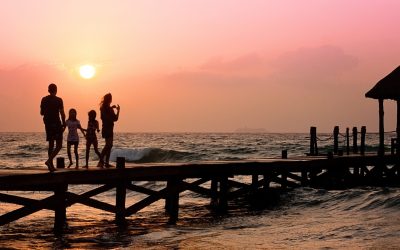For many, building their dream home in Italy is a pursuit of a lifetime. However, venturing into self-build projects in Italy requires careful legal navigation to avoid potential pitfalls. Before signing any paperwork for land purchase, seeking independent legal advice is highly advisable to ensure a smooth and successful journey.
Complexities of Building in Italy
While a parcel of land may have outline planning permission on paper, translating that into a fully realized building project can be extremely complex in Italy. The process involves navigating a labyrinth of red tape, including zoning and planning laws, environmental restrictions, building permits, and various regulations.
The Importance of a Specialist Team
To embark on self-build projects successfully, assembling a specialist team is paramount. Collaborating with professionals like architects, surveyors, lawyers, and notaries is crucial for a seamless experience. Going solo often leads to troubles that jeopardize or even halt the self-build dream. Obtaining relevant permits and managing soaring build costs can become significant hurdles.
Living on-site during Construction
Many individuals wish to reside on-site while building their property, reaping advantages such as enhanced security, reduced travel time, and close monitoring of progress. However, a common question arises – can a mobile home, RV, or caravan be placed on the land without planning permission?
Regulations Surrounding Mobile Accommodation
The classification of the land according to local authority town-planning schemes plays a vital role in determining the feasibility of mobile accommodation without planning permission. The “Building Legislation and Regulation Consolidation Act” in Italy does not permit ground anchor systems for mobile homes, RVs, and caravans without a construction permit. Installing such a system would legally categorize the accommodation as a “new building.”
Conditions for Temporary Use
However, according to the Decreto Casa, anchor systems are permitted for temporary installations, such as on a proper outdoor accommodation site like a camping site. Temporary anchoring is crucial, as seasonal anchoring might imply a long, potentially permanent stay, which contravenes the requirements of temporariness. Additionally, connecting mobile accommodation to utilities implies an intention of an extended or permanent stay.
Residential Use and Construction Permit
For permanent use, such as residential purposes during a self-build project, a construction permit is mandatory. The siting and installation of accommodation during the building phase do not meet the temporary status required. Even without ground anchoring or utility connections, the installation is considered non-temporary if there is evidence of regular and long-term use.
Exemption from Construction Permit
A construction permit is not required under specific conditions:
1. The mobile home, RV, or caravan is positioned on tyres, duly approved, and insured for road transport.
2. The mobile accommodation fulfills the requirements of temporariness.
3. The mobile accommodation is immediately movable and can be relocated elsewhere (not anchored).
4. The mobile accommodation lacks on-site power and drinking water connections.
Conclusion
When undertaking self-build projects in Italy, seeking legal advice is essential to navigate the complexities of land purchase and building regulations. Assessing the feasibility of mobile accommodation requires understanding local authority town-planning schemes and compliance with temporariness requirements. For further insights or assistance with Italian self-build projects, I invite you to comment and share your experiences or reach out for expert legal advice.



Hi,
I read your article above with interest – we have an Umbrian farm in the family, recently a guesthouse has been built on the property (with planning permission) but we are looking to gain permission to place a few caravans on the property to raise income and also provide places for guests to stay come harvest time. You mentioned you would need to meet the criteria for ‘touristic use of the land’ – we have flat areas of land suitable for wheeled caravan/trailers and would be simply using wooden blocks to prevent the wheels from rolling.
What would we need to do to gain permission? We want the farm to remaina working farm, but there is plenty of spare land that could be put to use.
On that note, ie: putting the land to use, what would the rules be if we wanted instead/as well to convert an area of land into a solar farm for feeding electricity into the grid (as another way of increasing income).